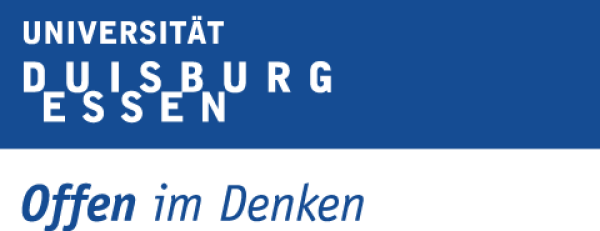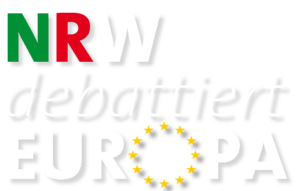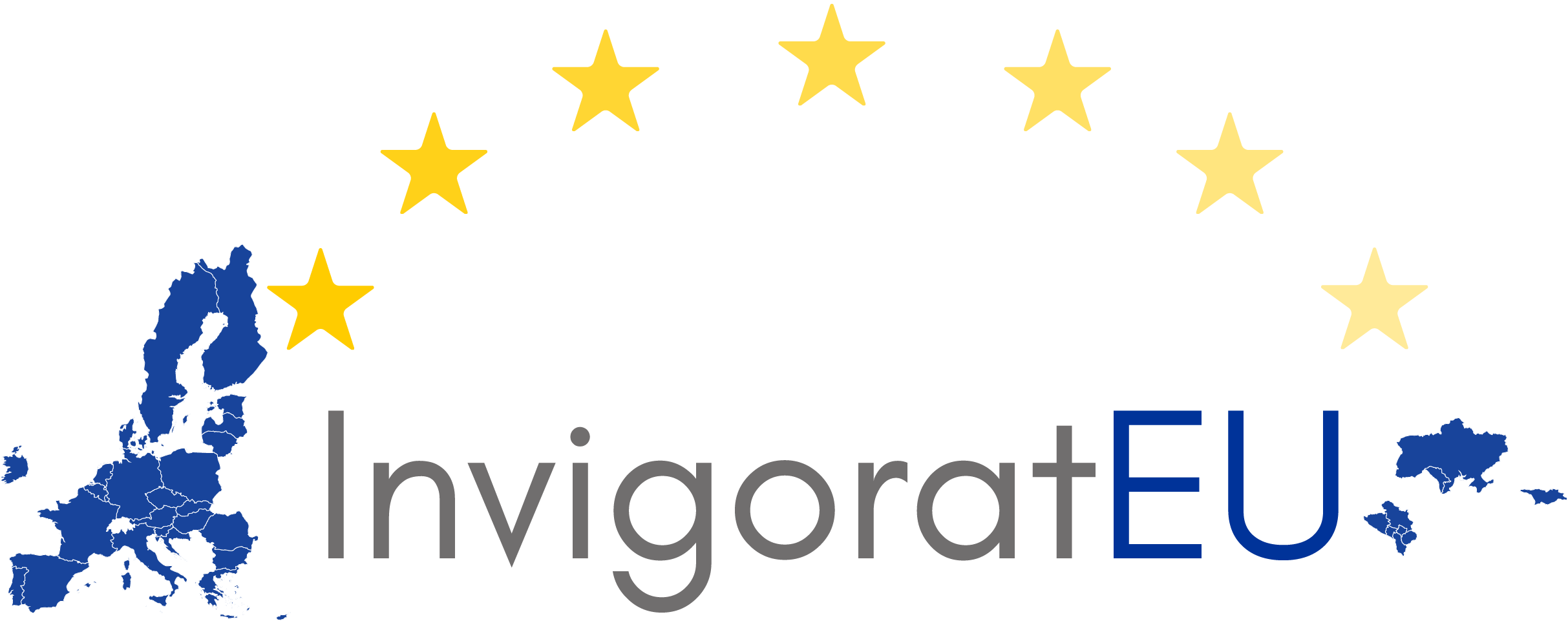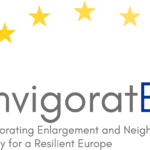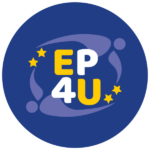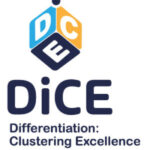My research focuses on non-voters in elections in multilevel governance structures, European elections, the future of Europe, EU enlargement, differentiate integration, micromanagement of European institutions, the implementation of EU law, norms and values in the member states, classical and alternative forms of European decision-making (delegated acts and comitology) and the Europeanisation of political systems.
A complete overview of all publications by Prof Dr Kaeding can be found here (last updated in May 2024).
citations
since 2018
You can find more metrics on Google Scholar
Fields of research
Below you will find the various fields of research that are dealt with in the chair. Click on a specific field to find previously published articles on that topic.
Below you will find previously published articles that deal with this field of research.
Below you will find previously published articles that deal with this field of research.
European Parliament
Kaeding, Michael and Niko Switek (Hrsg.) (2015) "Die Europawahl 2014", Wiesbaden: Springer VS.
European Commission
EU Agencies
Kaeding, M. and M. Milenkovic (2023)“Candidate Countries’ Engagement with European Union Agencies – Alternative Modes of EU Integration?”, Journal of Balkan and Near Eastern Studies https://doi.org/10.1080/19448953.2023.2167349
Kaeding, M. (2019) "Europäische Argenturen - ein Forschungsfeld im Werden", in: Integration, 42 (1).
Council of the European Union
European Central Bank
Below you will find previously published articles that deal with this field of research.
Below you will find previously published articles that deal with this field of research.
Haußner, S., Kaeding, M. (2020) Political equality without social equality? Social distortion of voter turnout in the European elections 2019 across nine European capitals. in: Research & Politics (2019 European Parliament Elections Special Issue)
Kaeding, M. (2020) (Hrsg.) Special Issue on the European Elections 2019, Research & Politics.
Kaeding, Michael und Niko Switek (Hrsg.) (2015) "Die Europawahl 2014", Wiesbaden: Springer VS.
Below you will find previously published articles that deal with this field of research.
Classic decision-making
Alternative decision-making
Below you will find previously published articles that deal with this field of research.
Below you will find previously published articles that deal with this field of research.
Practical implementation
Transposition
Below you will find previously published articles that deal with this field of research.
Research projects
The chair coordinates and participates in various EU-wide projects. You can find out more about current and past projects below.
New Horizon Europe project: Preparing Europe for the future
With Ukraine, the Republic of Moldova and Georgia, the number of official candidate countries for accession to the European Union has grown to ten. This means that EU enlargement is once again a key strategy for contributing to greater stability and prosperity throughout Europe in times of new geopolitical challenges. From 1 January 2024, InvigoratEU* - a new Horizon Europe project coordinated by the EU Chair at the University of Duisburg-Essen together with the Institute for European Politics in Berlin - will examine how the EU can structure its relations with its eastern neighbours and the Western Balkan states in the future. The consortium will initially be funded by the EU for the next three years with around three million euros.
How can the EU strengthen its enlargement and neighbourhood policy? Can it ensure Europe's future viability beyond its borders? The InvigoratEU project, coordinated by Prof Dr Michael Kaeding, Professor of European Integration and European Policy at the University of Duisburg-Essen (UDE), aims to find answers to this question. Fifty academics from various EU and non-EU countries are taking part in the project.
Prof Kaeding co-lead (together with Prof Braun) of the new Horizon Europe project ActEU
The ActEU project "Towards a new era of representative democracy - Activating European Citizens' Trust in Times of Crises and Polarisation" starts on 01/03/2023 and aims to find answers to the following questions with 12 consortium partners from all over Europe: How can we conceptualise and empirically measure political trust and legitimacy beyond the usual survey question "How much trust do you have in parliament?"
Does the multi-level nature of European representative democracies require an identical level of support from citizens at regional, national and EU level? To what extent does social polarisation on key political issues of our time - immigration, climate change and gender inequality - challenge political trust in democratic political systems and their legitimacy? And what can political decision-makers and civil society do to overcome these challenges?
ActEU pursues two overarching objectives: In Phase 1, we are investigating the persistent problems of declining trust, legitimacy and representation in Europe, with a particular focus on the polarisation of societies and the multi-level structures of the EU. The Saarland University-based team, led by Prof. Dr. Daniela Braun, provides a conceptual framework for political attitudes, behaviour and representation across Europe and creates an original empirical infrastructure based on an innovative combination of methods and newly collected quantitative and qualitative empirical data (focus groups, experimental surveys, web scraping). In phase 2, these results will feed directly into the development of a toolbox of remedies to improve political trust and legitimacy in European representative democracies (e.g. via a civil society network, Youth Democracy Labs in 13 European cities; "Cartooning for democracy").
Prof Kaeding (TEPSA) Member of the advisory board of the new EU project on the EP
EP4U is a project that aims to raise citizens' awareness of EU policies and to involve students, pupils and the general public in discussions about the work of the EU and the European Parliament in four policy areas that are considered important for these target groups: Climate and environment, employment and social policy, migration and asylum, and non-discrimination and protection of fundamental rights. These four policy areas are analysed in four different Member States: Finland, France, Bulgaria and Slovakia, with the project also reaching transnational target groups in other Member States. To achieve these objectives, TEPSA will carry out the following activities:
- Events
- Activities in the area of communication
- Competitions for school projects
- Lectures at schools
You can find the factsheet on the project here.
UDE leads EU-H2020 project on the future of EU-Central Asia relations
Thousands of kilometres and political worlds separate them: Nevertheless, Central Asia and the EU have become important partners. In the project "SEnECA - Strengthening and Energising EU-Central Asia Relations", academics and think tanks want to work out how relations can continue to grow. Dr Michael Kaeding, Professor of European Politics at the University of Duisburg-Essen (UDE), and Dr Katrin Böttger, Deputy Director of the Berlin Institute for European Politics (IEP), are leading the project and are receiving support from Brussels: the European Commission is funding SEnECA with around 1.5 million euros over the next two years.
Kazakhstan, Kyrgyzstan, Tajikistan, Turkmenistan and Uzbekistan: the EU has been pursuing a 'new partnership strategy' in the region for ten years. This is because the countries at the interface between Asia and Europe are geopolitically significant. It is also in Europe's interest that stable and democratic societies develop there.
Prof Kaeding (TEPSA) Part of H2020 InDivEU project on Differentiated Integration
InDivEU aims to maximise our knowledge about differentiated integration by systematically pursuing four research objectives: Models, scenarios and visions, the preferences of citizens, governments and parties, the causes and effects, and other forms of flexibility.
InDivEU is led by the EUI and ETH Zurich and brings together the key disciplines of political theory, political science, law and economics that ensure the transdisciplinary analysis of differentiated integration. The EU H2020 project will run for three years - until 2022.
More info at: http://indiveu.eui.eu/
Prof Kaeding (TEPSA/UDE) Part of H2020 DiCE project on differentiated integration
Differentiation: Clustering Excellence" (DiCE) will create a large research network to support policy decisions on differentiation in the EU. This CSA creates a unique cluster of excellence by bringing together, through its coordinators, the three successful H2020 sister projects on differentiation (EU3D, EU IDEA, InDivEU), reinforced by the involvement of the TEPSA network and a strategy to involve other experts as well as UNEXE. The overall objective of DiCE is to ensure that state-of-the-art research on differentiation is properly translated into policy-relevant advice and made accessible to policy makers at European, national and regional level to better prepare the EU for future differentiation scenarios. The open and inclusive network will become a "Who's Who" of researchers working on differentiation and the dynamics of European integration. The three projects include 38 partner organisations (22 universities, 15 think tanks, 1 media partner) from all over Europe, involving more than 50 leading researchers and experts on differentiation. TEPSA's presence in 35 European countries further extends the geographical reach of the projects.
Further information can be found here.
